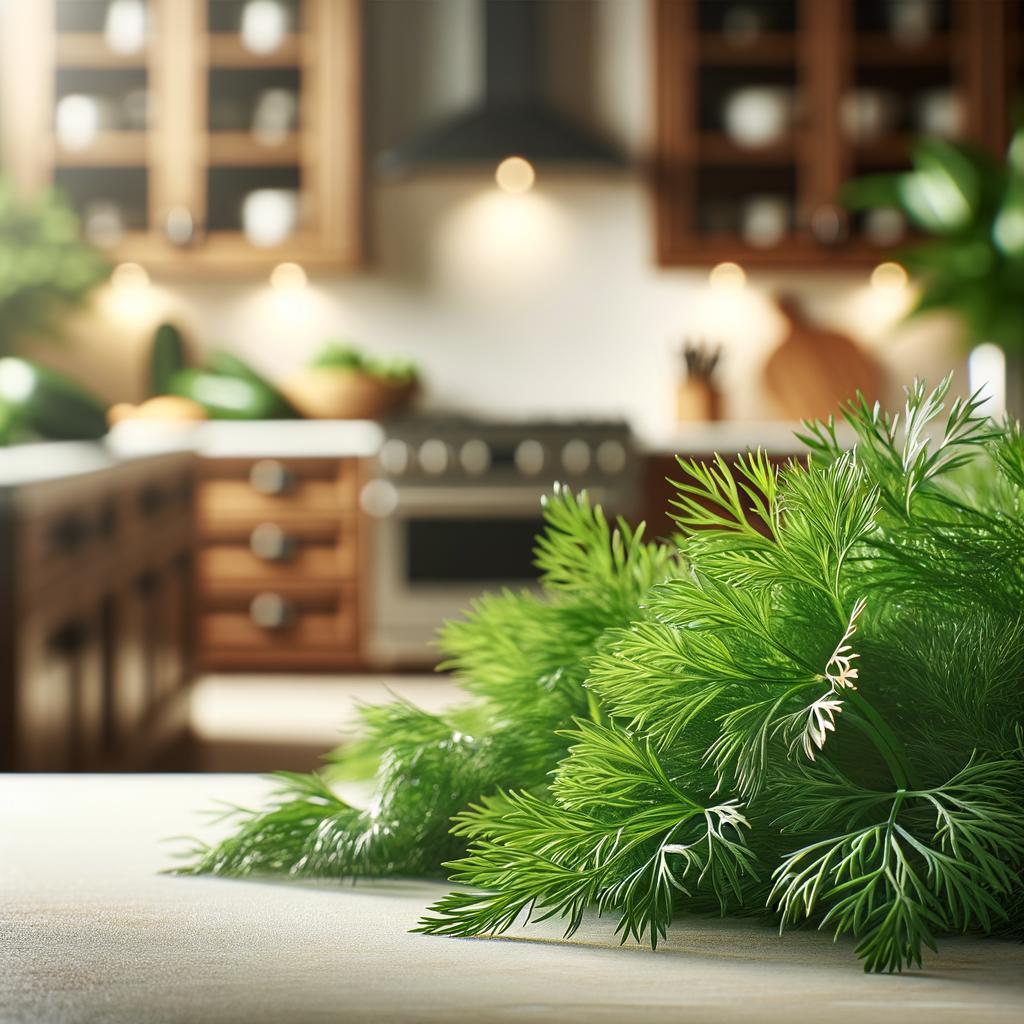Dill

Description Dill, scientifically known as Anethum graveolens, is a delicate, feathery herb that is as beautiful as it is flavorful. Its fine, slender leaves are a vibrant shade of green, resembling a delicate lacework. The texture is soft, almost velvety, and it carries a unique and refreshing aroma. The flavor of dill is a delightful blend of celery and fennel with a slightly bitter undertone. It's a herb that dances on the tongue, leaving behind a hint of sweet, anise-like spiciness that is uniquely its own.
Primary Uses Dill is a versatile herb that's used extensively in various cuisines around the world. It's a key component in many Scandinavian dishes, like gravlax, and is a staple in Greek cuisine, particularly in their famous tzatziki sauce. In the Middle East, it's often used in rice dishes and stews, while in America, it's a classic flavoring for pickles. Beyond culinary uses, dill has a history of being used for medicinal purposes, particularly for digestive problems, and its seeds are often used in home remedies for colic and insomnia.
History Dill has a rich and romantic history that dates back to ancient times. It was highly prized in the ancient Greek and Roman civilizations, not only as a culinary herb but also for its medicinal properties. In fact, the name 'dill' comes from the old Norse word 'dylla', which means to soothe or lull, reflecting its use in ancient times as a stomach soother and sleep aid. Over time, its use spread across Europe and Asia, and it eventually found its way to the New World with early settlers. There are even folk tales from the Middle Ages that suggest dill was used as a protection against witchcraft!
Nutritional Information Dill is not just a flavorful herb, but also a nutritional powerhouse. It's an excellent source of vitamins A and C, and it also provides a good amount of dietary fiber. It contains a variety of minerals including iron, magnesium, and calcium. Dill is also known for its antioxidant properties, which can help protect the body against damage from free radicals. When compared to similar herbs, dill stands out for its unique blend of essential oils, flavonoids, and monoterpenes, which contribute to its healing properties and distinct flavor.

